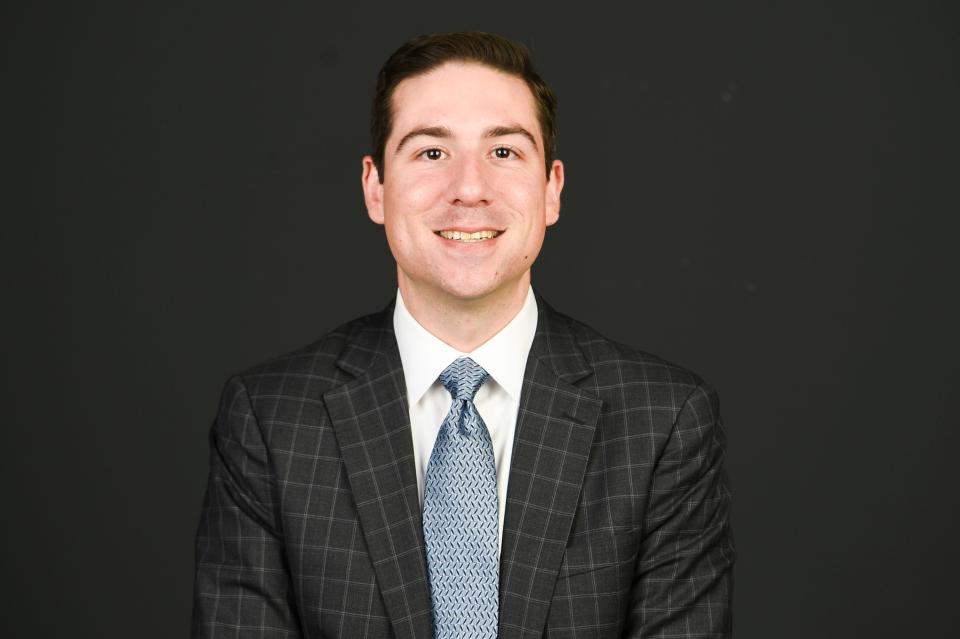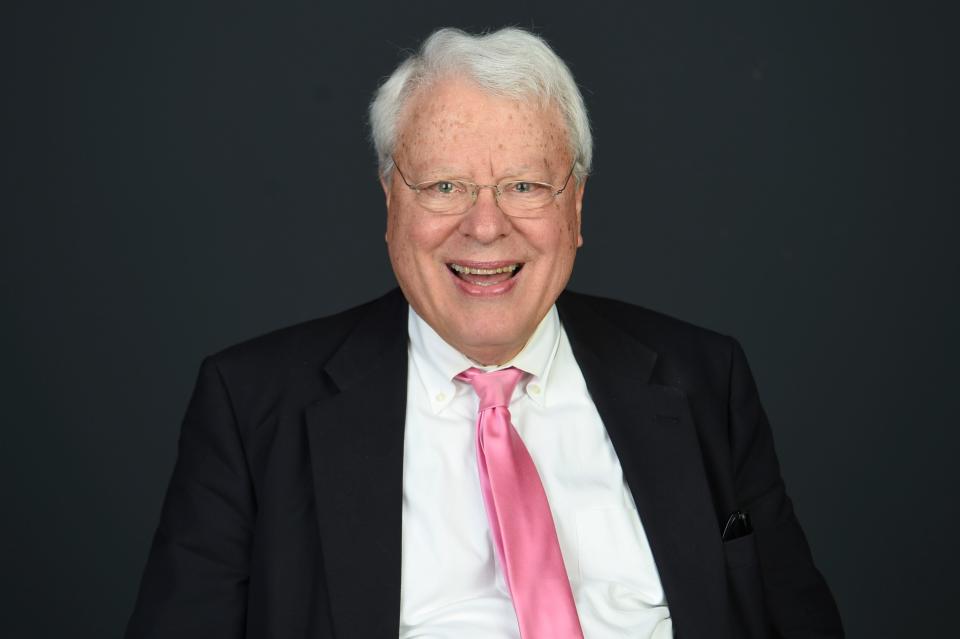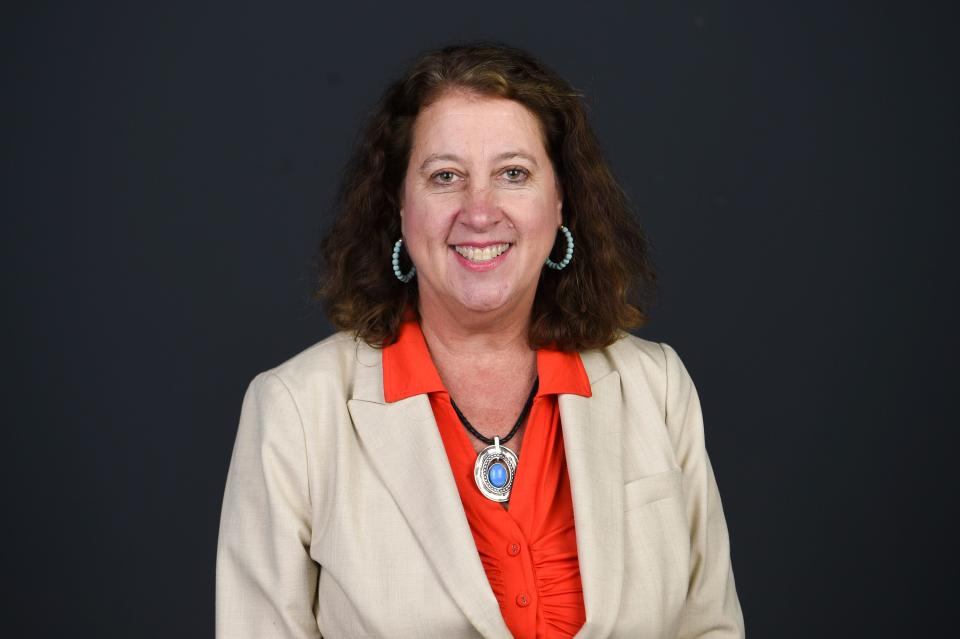Knoxville municipal judge: Get to know the four candidates
Knoxville Municipal Judge John Rosson, who is seeking reelection to the office he has held since 1986, faces three challengers – Andrew Beamer, Tyler Caviness and Mary Ward – in the Aug. 29 primary election.
Beamer, 38, has a law degree from Barry University in Orlando, Florida, and is a private practice attorney who also works as court-appointed counsel to indigent and disabled defendants.
Caviness, 31, has a law degree from the University of Tennessee and is former public defender and a private practice attorney.
Rosson, 75, holds a law degree from University of Tennessee. Since 1976, he has practiced law privately in addition to his judgeship.
Ward, 56, has a law degree from Wake Forest University and is a criminal defense attorney.
The municipal judge oversees the city's traffic court, handling traffic citations and parking tickets, plus other violations of city ordinances.
The two candidates who get the most votes in the primary will move on to the Nov. 7 general election. If a candidate gets 50% of the votes plus one, that person is named the winner. There is no limit on the number of four-year terms a municipal judge can serve.
Forum: What Knoxville municipal judge candidates had to say about how they'd run the court
Here are the candidates’ summarized responses from their interviews with Knox News.
Andrew Beamer

Leadership style in the courtroom
Beamer said he has built a successful law practice by being honest, efficient, open to new ideas and constantly looking for ways to improve. That is how he would run the court.
“It's a style of wanting to look at ways to fix things that have broken and always be asking the question, 'Is it broken?'” he said. “I'm super interested in everyone's ideas, including the clerks. That's where the institution of knowledge is super strong.”
Changes he'd make to the court
One the first changes Beamer would implement is updating the City Court webpage to include helpful information, particularly regarding the appeal process. He also would increase night court sessions, currently offered two nights a week, and make a concerted effort to reach out to people with unpaid fees to reevaluate their cases.
“That's really the number one – we have to get these people back in and figure out how to get them back on track,” he said.
Secondly, Beamer intends to meet with court employees to assess other problems and brainstorm solutions.
Technological advancements
Beamer is supportive of the technology available at the new Knoxville Public Safety Complex where City Court is located. And he wants to continue to show police body camera and patrol car videos, but he does have some technology concerns.
“If it helps due process, if it helps get to the truth of the matter, it's probably OK. But I'm not the biggest for let’s have more technology for the sake of more technology,” he said.
He prefers in-person court rather than overusing Zoom or virtual hearings and has concerns regarding data collection for the Administrative Office of the Courts.
“We will make sure that data gets collected, but you also want to make sure that you're not collecting data in a way that is invasive or, at least, not a way that's invasive beyond what the state is requiring,” he said. “In that regard technology makes me nervous.”
Working with community advocacy groups
Community outreach is important to Beamer. He said he would be proactive in working with nonprofit organizations, shelters, social workers, churches and organizations focused on marginalized communities to help people resolve outstanding fines or work through suspended license cases.
“It's so important to get people back on their feet and it’s so important to give people the hope that the future is brighter,” he said.
Beamer is sympathetic to those with substance abuse issues, but said, as the judge, safety concerns should be heavily considered, especially in traffic violation cases. “If you're wrong about something, someone can get really hurt and you have to take that responsibility, too.”
Factors you weigh when it comes to important decisions, such as taking away a driver’s license
Beamer’s hope is that decisions made as municipal judge won’t be life-altering, but he understands that a $100 fine or a suspended license can have a far-reaching impact for many people appearing in city court.
“A lot of people in front of you are, if not at the poverty level they are close to that poverty level, and as judge you actually can consider all of that,” he said.
He would evaluate everyone’s unique circumstances, weighing socioeconomics, home and family responsibilities, and work obligations.
“If they just show up and say, ‘My license is suspended because I owe X,’ we will figure it out and deal with it,” he said. “I would much rather people be legally driving than driving with a suspended license, with no insurance, risking criminal activity. In effect, you’re criminalizing poverty and it is essential that we don't do that.”
Tyler M. Caviness

Leadership style in the courtroom
A people-first approach is how Caviness would lead the courtroom, he said.
“I've seen the impacts that the court can have or does have on people,” he said, adding that he’d lead with a recognition that “it’s not the judge’s courtroom, it’s really the people of Knoxville's courtroom.”
Changes he'd make to the court
If elected, Caviness’ priority would be to improve accessibility to the court systems and enhance transparency when accessing information.
“The website that we have for the city court is not a picture of clarity,” he said.
For most people, going to the city court is the only time that they ever interact with the court system, and Caviness said his priority would be to make navigating that experience as seamless as possible.
If elected, Caviness would make the court's budget a more open process, holding public forums to seek community input and making budgetary information more robust and available.
Technological advancements
Caviness would use technology to improve the user experience for community members. One way of doing so is through sophisticated data collection and analysis.
For instance, if residents in a certain part of the city are constantly receiving more speeding tickets, Caviness' hope is that sharing that data with the city and the police department could bring about meaningful change.
"With data, we can see if there is a certain segment of the population that we're disproportionately impacting and if there is, what should we be doing?" Caviness said.
Working with community advocacy groups
One idea Caviness would like to implement is to have a citizen's advisory group made up of a cross-section of people to give feedback on on the court system.
"All government agencies should be eager to seek citizens' input," Caviness said, adding that he would like to work with community groups involved with populations impacted by the court system.
Another way to better serve those in the court system would be make available social and mental health service workers outside the court itself, he said.
Factors you weigh when it comes to important decisions, such as taking away a driver’s license
Listening to people's specific cases in their own words, looking at their history and striking a balance between what's fair for the person and for the rest of Knoxville would be Caviness' approach when making such decisions.
"We want to make sure we're not getting people who are working to get by and letting city court be one of the things that is pushing them further away from forward progress," he said.
John R. Rosson

Leadership style in the courtroom
Across 36 years, Rosson said he’s adopted a style of leniency that comes from listening to people’s stories. He casts himself as a people person who enjoys his job, which cuts across all segments of Knoxville society.
“I think the most important thing a judge can do, you've got to listen,” Rosson said. “You can be the smartest guy or lady in the world, but you've got to listen, because everybody has a different story, and they’re all special.”
Rosson described many instances when he has walked community members through their options and has extended court dates to allow them time to acquire a license or car insurance.
Changes you’d make to the court
Rosson is frank in his positive assessment. He said the court has made itself available for walk-in appointments and is transparent in its online presence.
“I’m not sure we’d make any changes,” Rosson said. “I think we are doing what we’re supposed to do right now. We have day court, we have night court, we hear cases as they come in.”
He gave credit to his staff, including court administrator Valerie Coleman, who he said were polite in dealing with the public.
Technological advancements
Rosson touted recent technological advancements in the court, including a large, high-definition TV that allows him to get a more accurate picture of traffic violations through traffic camera and police footage and Google Earth.
“It really enables both the officer and the citizen an opportunity to adequately and accurately explain what exactly happened,” Rosson said. “So that works out really well. That television has really been a great source of accuracy.”
He also referenced a phone-in service that offers translation into 173 languages, allowing communication with people from all over the world who come to Knoxville.
Working with community advocacy groups
Rosson said he is willing to work with community organizations. He has held court at the Knoxville Area Urban League on Fifth Avenue with General Sessions Court Judge Chuck Cerny three times, and plans to do so again Aug. 20.
The Urban League requested Rosson have court there since some residents are fearful about appearing in the courtroom.
“It works out really well for everybody,” Rosson said. “We do make some people pay something, sometimes. Sometimes, we suspend it all, depending on the situation.”
Factors you weigh when it comes to important decisions, such as taking away a driver’s license
Rosson considers three factors when it comes to traffic and city ordinance violations: the degree of the offense, the record of the offender and the offender’s demeanor. He said he tries to avoid harsh punitive actions, such as revoking a license.
He talks defendants through the pleas available to them, as well as the legal definitions of violations like running through a red light.
Part of Rosson’s lenient style is his openness to resetting court dates or waiving fees in light of personal situations. This includes delaying judgments until a person can obtain insurance and registration for their vehicle. Without those measures, fees from a simple traffic violation can stack up quickly.
“I really want to help people do the right thing,” Rosson said. “I don’t want to put people in a position where they have to choose between eating, paying their rent and paying their car insurance.”
Mary L. Ward

Leadership style in the courtroom
Ward said she’s a team player who leads by example. She understands she must have a lot of support from her team to accomplish their collective tasks and goals. If elected, Ward said she would meet with City Court employees to seek advice and to ensure the team was on the same page.
“If there are issues or if I'm doing something that is not the correct way to do it, I want someone to point that out,” she said. “I'm not afraid of criticism at all.”
Changes you’d make to the court
One of Ward's top priorities would assessing the effectiveness of the court’s current system of reaching out to people to get them into the courtroom.
She wants to implement strategies to ensure people understand the ramifications of not paying tickets or fines, and would appoint someone to help community members navigate the process of getting a driver’s license back. She also would look into community service options, rather than fining people who might not be able to pay.
“We just need to be more accessible and, honestly, more accountable to the public that we are there to serve,” Ward said.
Technological advancements
As a defense attorney, Ward said many of her clients don’t even know why their license has been suspended. Updating the City Court website to explain what fines people owe and informing them what to expect when they come to court is an upgrade Ward said is necessary.
She welcomes technological advancements and other simple fixes to improve the overall experience.
“It's not just who's creating our website, but when people come into that brand new public safety' building that we have, is it going to be approachable; is there going to be someone there that says, this is where you need to go – things of that nature to take kind of a coldness out of it,” she said.
Working with community advocacy groups
People face a multitude of issues, Ward said, and it’s important to recognize the complexity of these challenges. She said social workers and programs such as the McNabb Center and Cherokee Health Systems are resources to help get to the root of issues that might contribute to reasons for people having to appear in City Court.
“I think that the City Court has to work hand-to-hand with other court systems here to find out what are our biggest needs in our community and what do we need to do to address them,” she said.
Ward said the municipal judge has limitations in addressing certain issues, but that she would be in communication with the mayor, City Council, and other city leaders to provide help to those in crisis.
Factors you weigh when it comes to important decisions, such as taking away a driver’s license
“I think that taking somebody's driver's license needs to be absolutely a last resort,” Ward said. As judge, she said she would be mindful of everyone’s economic circumstances, their household and obligations, their medical needs and if they have other reliable means of transportation.
She said people who have a history of drinking and driving, or similar violations, don’t need to be driving, but she would assist in helping them find treatment.
This article originally appeared on Knoxville News Sentinel: Knoxville municipal judge: Get to know the four candidates

